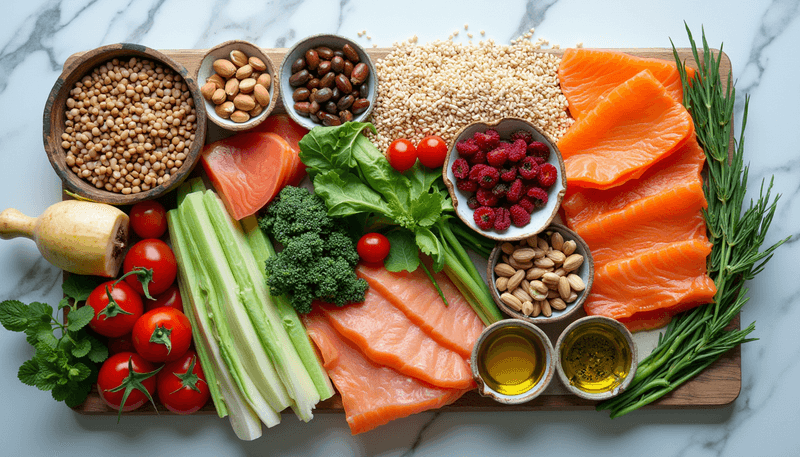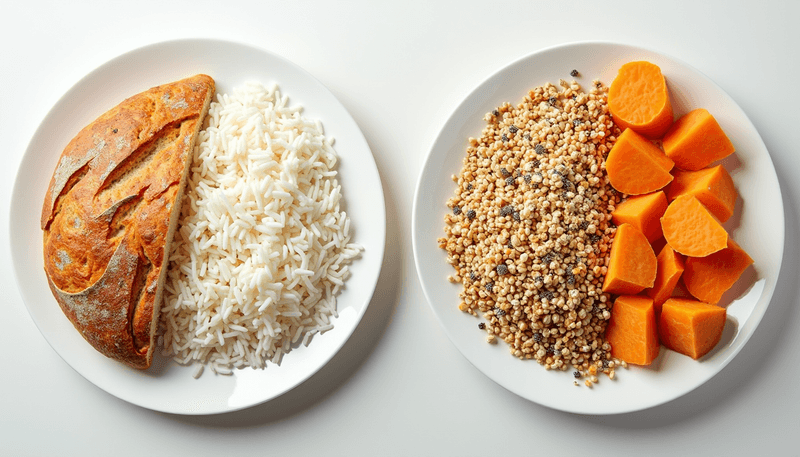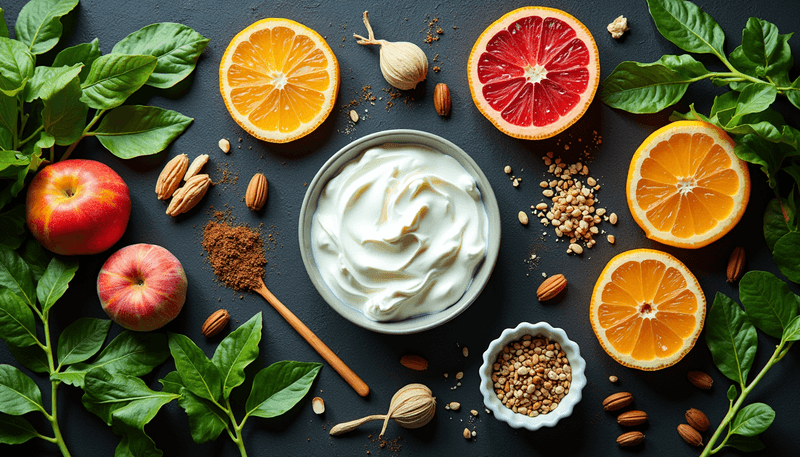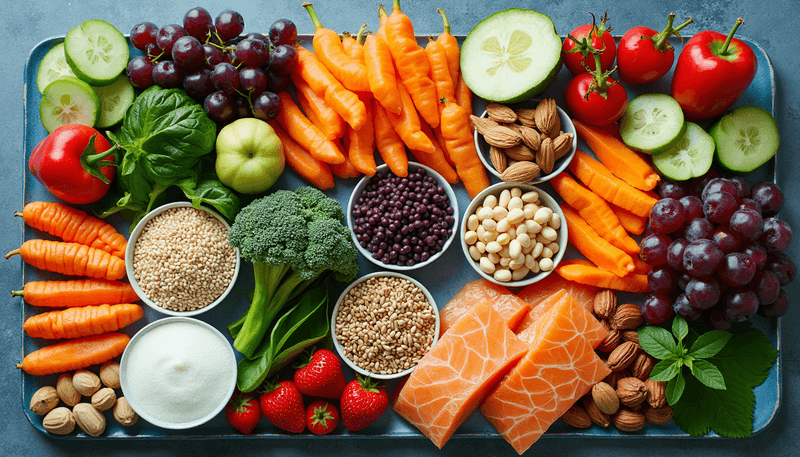Best Foods for Your Menopausal Body

Standing in my kitchen at age 48, staring at my open refrigerator, I realized how different my body felt compared to just a few years ago. As a health writer and someone going through perimenopause myself, I've learned that what we eat becomes even more important during this life transition. A comprehensive scientific review reveals that our nutritional choices can significantly impact how our bodies handle menopause.
The Mediterranean Diet: Your New Best Friend
Let's talk about why the Mediterranean diet keeps showing up in research as a top choice for menopausal women. This isn't just about eating pasta in Italy (though that sounds lovely!). The Mediterranean diet combines specific foods that work together like a well-orchestrated symphony for your body.
Have you noticed how your body responds differently to certain foods now compared to your 30s?
Think of the Mediterranean diet as your body's support team. The olive oil, nuts, and fish provide healthy fats that help maintain your muscle mass. The colorful vegetables and fruits are like nature's medicine cabinet, packed with antioxidants that protect your bones and heart. When I switched to this eating pattern, I noticed less bloating and more stable energy levels throughout the day.
Smart Carbs for Weight Management
One of the most frustrating aspects of menopause can be weight changes, particularly around the middle. The science shows that not all carbohydrates are created equal. The key is choosing carbs with a low glycemic index (GI).
Think of high-GI foods like a roller coaster - they send your blood sugar soaring up, then crashing down, leaving you hungry and tired. Low-GI foods are more like a gentle wave, providing steady energy and helping maintain a healthy weight.
Practical Low-GI Food Swaps:
- Replace white bread with whole grain varieties
- Choose steel-cut oats instead of instant oatmeal
- Swap white rice for quinoa or brown rice
- Pick sweet potatoes over white potatoes
Building Strong Bones Naturally
The research highlights how bone health becomes particularly important after menopause. Your bones are like a savings account - the more you deposit early on, the better off you'll be later. But it's never too late to start making "deposits" through proper nutrition.
Did you know that your body needs more than just calcium for strong bones?
While calcium and vitamin D are important, other nutrients play crucial supporting roles:
- Beta-carotene: Found in orange and dark green vegetables
- Vitamin K: Abundant in leafy greens
- Selenium: Present in nuts and seeds
- Vitamin C: Available in citrus fruits and berries
I've made it a habit to include at least one food from each of these categories daily. For example, my morning smoothie combines Greek yogurt (calcium) with oranges (vitamin C) and a handful of spinach (vitamin K).
Protecting Your Heart
The research reveals that menopause can affect heart health through various mechanisms. However, dietary choices can make a significant difference. Think of your cardiovascular system as a garden - it needs regular care and the right nutrients to thrive.
Heart-Healthy Daily Targets:
- 4.5 cups of fruits and vegetables
- 200g of fish weekly
- 3+ servings of whole grains
- 4 servings of nuts, seeds, and legumes weekly
When I implemented these guidelines, I noticed improvements in my blood pressure readings within just a few months. The key is consistency rather than perfection.
The science is clear - what we eat during menopause can significantly impact how we feel and function. Start with one change this week. Perhaps swap your morning pastry for a bowl of Greek yogurt with berries and nuts, or add an extra serving of vegetables to your dinner plate.
Which of these dietary changes feels most doable for you to start with tomorrow?
Your body is going through a natural transition, and with the right nutritional support, you can help it adapt and thrive. The choices you make today shape how you'll feel tomorrow and in the years to come.

Amelia Grace Okonkwo
Amelia Grace Okonkwo is a freelance health writer and author with over 15 years of experience in health journalism, specializing in women's health and autoimmune disorders. With a background in biology and a Master’s in Public Health from Johns Hopkins, she combines scientific accuracy with a storytelling approach to make health information accessible and empowering. Amelia is known for her bestselling book, "The Skin We're In," which explores autoimmune disorders and their impact. She is passionate about delivering practical health insights for women, addressing topics from midlife wellness to mental health.






